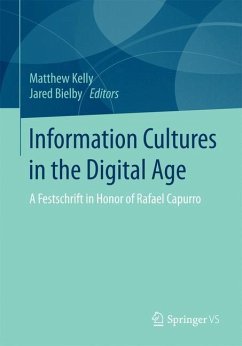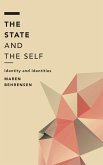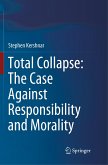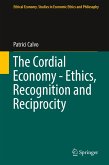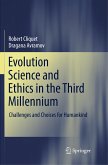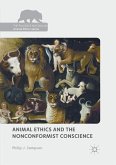For several decades Rafael Capurro has been at the forefront of defining the relationship between information and modernity through both phenomenological and ethical formulations. In exploring both of these themes Capurro has re-vivified the transcultural and intercultural expressions of how we bring an understanding of information to bear on scientific knowledge production and intermediation. Capurro has long stressed the need to look deeply into how we contextualize the information problems that scientific society creates for us and to re-incorporate a pragmatic dimension into our response that provides a balance to the cognitive turn in information science.
With contributions from 35 scholars from 15 countries, Information Cultures in the Digital Age focuses on the culture and philosophy of information, information ethics, the relationship of information to message, the historic and semiotic understanding of information, the relationship of information to power and the future of information education. This Festschrift seeks to celebrate Rafael Capurro's important contribution to a global dialogue on how information conceptualisation, use and technology impact human culture and the ethical questions that arise from this dynamic relationship.
With contributions from 35 scholars from 15 countries, Information Cultures in the Digital Age focuses on the culture and philosophy of information, information ethics, the relationship of information to message, the historic and semiotic understanding of information, the relationship of information to power and the future of information education. This Festschrift seeks to celebrate Rafael Capurro's important contribution to a global dialogue on how information conceptualisation, use and technology impact human culture and the ethical questions that arise from this dynamic relationship.

